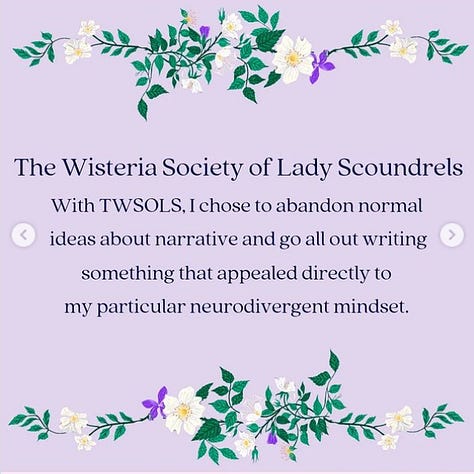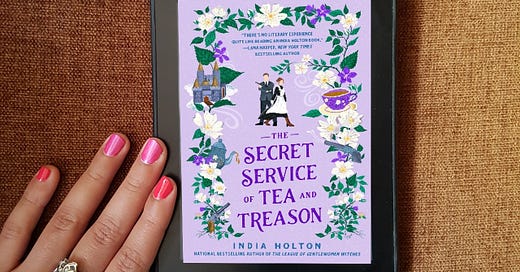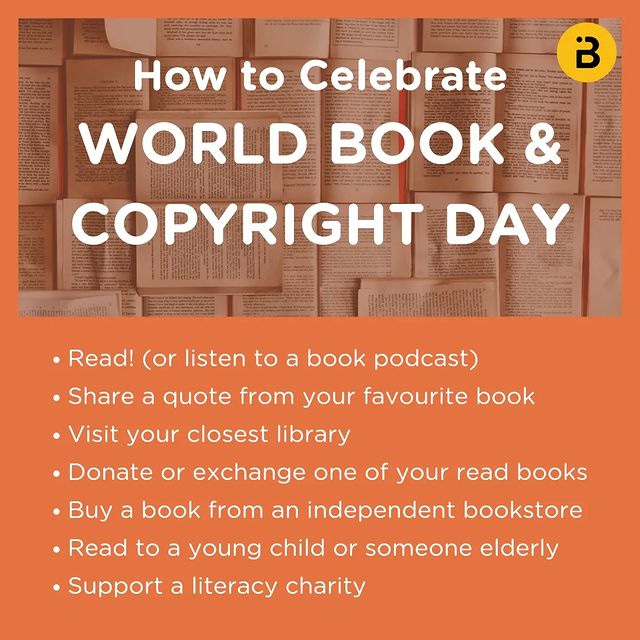Hi and welcome to the Storyteller!
Did you enjoy last week’s series spotlight? If not, you can catch up here.
Today, on UNESCO World Book and Copyright Day, it’s time for round two of the re-launched edition of this newsletter’s interview series, and I’m delighted to welcome as a guest none other than India Holton. If you read the previous issue, you’ll know why I love this author’s work, and I was thrilled when she agreed to come on here as a guest (with her in New Zealand and me in India, this was an email interview, but the answers are no less delightful as you’ll soon find out).
Bio
National bestselling author India Holton lives in New Zealand, where she grew up running barefoot around islands, wandering forests, and messing about in boats. She writes historical fantasy romcoms featuring unconventional women and charming rogues. Both her books have been Indie bestsellers, Amazon Editors Picks, and featured on several Best Of lists. The Wisteria Society of Lady Scoundrels was a New York Times Notable Book of 2021. India's writing is fuelled by tea, buttered scones, and thunderstorms.
Let’s hear from her, shall we?
Anu: Welcome to The Storyteller, India! Did you always want to be a writer?
India: Yes, I can’t even tell you when it began, I almost feel like I was born wanting to tell stories.
Anu: What draws you to write historical fantasy romcoms with strong feminist undertones? Any noticeable influences or inspirations? I would particularly like to know more about how you approached writing comedy and whether you have any advice—you make it seem effortless!
India: I like writing historical fantasy romcoms because of the freedom they give me to explore ideas, tropes, and characters in a way that contemporary novels wouldn’t. Also, as a history buff, I love doing the research! My inspirations range from Oscar Wilde to Jane Austen, with a detour through fantasy books by authors like Patricia McKillip and Terry Pratchett, coming around again to Elizabeth Gaskell and Mark Twain. Really, I’m an inspiration scavenger, I’ll take it from everywhere.
I must confess, I don’t approach writing comedy. I sit at my desk with a slightly bewildered expression and it approaches me—sometimes on shy tip-toes, sometimes boldly, sometimes sneaking up behind me to hit me over the head with a decidedly unfunny rubber chicken. As a consequence, I have no advice. There are rules, structures, and tips you can follow, but it’s all moot if comedy chooses to snub you.
Anu: What do you want readers to take away from your books?
India: If they find themselves entertained, that’s my job done. If they feel pleasantly diverted from any of their stresses and concerns, that’s a bonus. And if I get them thinking about the way women are treated in society, the effects of trauma on the spirit, and what the experience of neurodivergence can be like for some people, that’s when I really smile.
Source: https://www.instagram.com/india.holton







Anu: Where did the idea for the Dangerous Damsels series come from? Was it always going to be a trilogy?
India: Cecilia and Miss Darlington appeared out of the blue one day to literally hijack my imagination. The Wisteria Society of Lady Scoundrels was completely based on those two characters and their relationship. Details like flying houses and mad villains came during the consequent brainstorming session as I tried to figure out who on earth these women were! I had no thoughts of a trilogy, writing the book was purely an adventure that ended up taking me exciting places I never even dreamed about!
Anu: I must say that Tea and Treason might be my favourite of the three, even though I love the first two. In many ways, it reads more intimate and personal, more assured. As a writer who had already gone through the writing and publishing process for two books, did you find any changes or differences this time around?
India: Actually, Tea and Treason was a little harder to write than the other two, because my head was full of all the feedback for those books, and I had to constantly discard that so I was able to take risks with my writing—which I think is key when it comes to comedy. But ultimately it’s my favourite too, because Alice and Daniel were such amazing characters to work with. I knew what I wanted from them, and I was able to get it. They were the calm place in my mind while the story tumbled around me wildly, pirate-style.
Anu: I enjoy finding classic literature allusions in your books. Can you talk a bit about these Easter Eggs and your decision to include them?
India: It began by accident. Before I started writing Wisteria I’d been working on a different story, in which the heroine was trying to collect a volume of Jane Eyre. I find beginnings difficult, so I used the first sentence of that story for Wisteria (it’s actually a paraphrase of Jane Eyre’s first sentence) . . . and things just escalated from there. I personally had fun with it, so in League I instantly decided that Charlotte would use Jane Austen’s books as her script for social interactions. And in Tea and Treason, Alice and Daniel love books so much, the issue was trying to keep them from making literary allusions in every second sentence!
Anu: I'm sure readers of the Storyteller (this writer included) would love to know how you approached the world building of your alternate Victorian England—its social mores as well as fantastical elements. It feels very believable!
India: The world in Dangerous Damsels is the world of real Victorian England, just with the addition of a sole magical incantation that can make things fly. That magic came about because I was trying to think of a way Miss Darlington and Cecilia could dash about committing their crimes. Flying houses seemed perfect for the whole “lady of the house” convention of the era, and proved to be the perfect vehicle (if you’ll excuse the pun) for satirising Victorian social mores and those of our contemporary society.
Anu: Is there any advice you wish you’d gotten when you first started out? Or just any advice for aspiring authors from your own experience, something that’s really helped you in your writing and publishing journey so far?
India: I always advise aspiring authors to read mindfully, and to really think about what you’re reading, how it works, how it doesn’t work, why the author made the choices they did, why you’re experiencing certain reactions as a reader. Then apply those thoughts to your own writing practice.
Anu: What's your favourite non-writing part of the publishing process?
India: Reading other people’s books!
Anu: Are you allowed to share anything about your new book, The Ornithologist's Field Guide to Love? The excerpt included at the end of the Tea and Treason ARC has me excited!
India: I only recently handed it in to my editor, so I don’t know how accurate anything I say now will be by the time it’s gone through the various layers of editing! But I can share that it’s my most romantic book to date, set in a completely different world from the Dangerous Damsels but still the late Victorian era, and when I’m going for a stroll or driving some distance I like to entertain myself by imagining its various scenes—which is why I no doubt get odd looks from people as I’m sighing dreamily or chuckling to myself for no apparent reason!
Thank you so much for taking the time out to answer my questions, India!
You can find her at website | instagram - both of which have buy links for her books.
Here’s a short blurb shared for The Ornithologist's Field Guide to Love (coming Summer 2024):
In a Victorian world of magical birds and gallivanting professors, two rival ornithologists race across France and England in a competition to win Birder of the Year - but may just end up losing their hearts along the way.
Finally, here are some great suggestions by the Bound team on how to celebrate World Book and Copyright Day. Which one will you be picking?
As always, please feel free send in recommendations—books, movie, TV shows, authors to interview, ideas of what you’d like me to write on, rants/ramblings/excited monologues, GIFs and memes (especially them) and more. Just drop me a line and turn this into a conversation, even if just to say hi and let me know what you thought of the latest issue :) Or share this with someone you think might enjoy it.
Take care and see you next week! As Alice Dearlove says, “Reading is not a hobby, it is a way of life.”
Anu
If you really like the newsletter, please feel free to buy me a coffee: https://ko-fi.com/anushreenande
You can find me on Twitter at @AnuNande (follow for all the football chatter) and on Instagram at @booksinboston.







Wonderful interview. It is always fascinating to peep into the thought processes of the writer. I look forward to the latest by India Holton. Best wishes to you both.